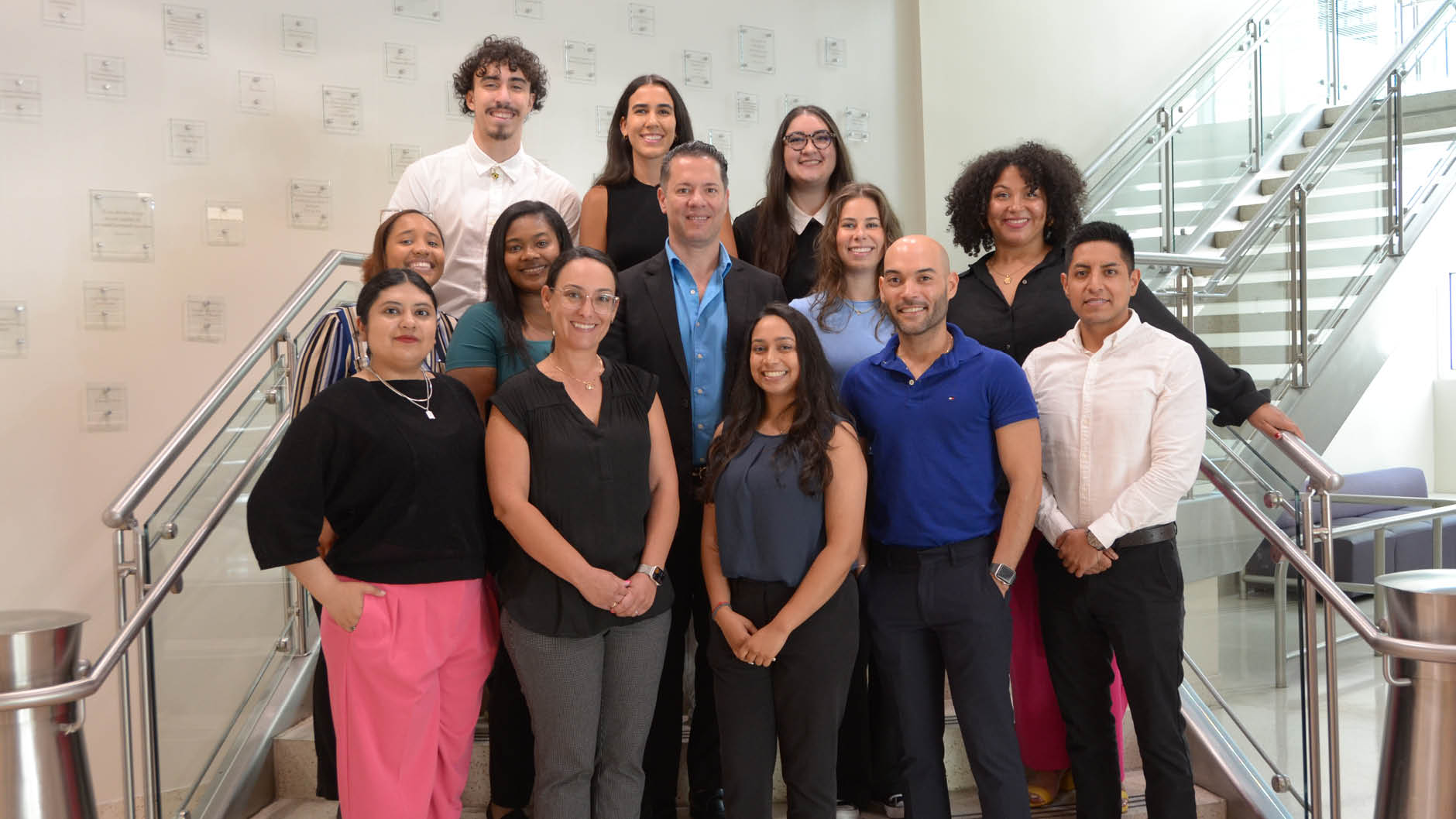The Minority Health and Health Disparities Research Training (MHRT) program at the University of Miami School of Nursing and Health Studies (SONHS) proudly announces the selection of ten exceptional grantees for its 2023-2024 cohort. This year marks the program's tenth at SONHS, which has successfully trained 91 participants during the past nine years. The newest cohort is comprised of talented individuals from prestigious universities across the United States, each chosen for their dedication to advancing minority health and reducing health disparities through research.
MHRT is funded by the National Institutes of Health’s National Institute on Minority Health and Health Disparities (NIMHD) to improve diverse representation of research scientists from health disparity populations in the biomedical, clinical, and social sciences.
The 2023-2024 MHRT trainees are:
- Alexandra Amaya, University of Miami
- Jasmine A'Lycee Davis, University of Miami
- Rosseirys de la Rosa, Vanderbilt University
- Sascha Frias-Kaehler, University of Miami
- Lily Friedman, University of Miami
- Andrea Jacobo, University of California, Berkeley
- Lynda Jimenez, Columbia University
- Daisy Lopez, University of California, Los Angeles
- Julio Martin, University of Florida
- Anuradah Ramdas, University of Miami
These students recently gathered in Miami, Florida, where they spent one week at SONHS. This one-week training in Miami was a crucial part of the MHRT program, designed to equip participants with the necessary skills and knowledge to undertake their research projects. This training included workshops on research methodologies, ethical considerations in international health research, and strategies for effective collaboration with global research teams. The students also had the opportunity to engage with experienced researchers and mentors, who provided guidance and insights into the complexities of conducting health disparities research. In addition, they were able to speak with Scott Dalton and Heidy Medina, MHRT alumni from the 2022-2023 cohort.
Following their preparation in Miami, the 10 students embarked on an 11-week research experience abroad. They are working closely with their mentors and local research teams in four countries: Colombia, Mexico, Brazil, and Jamaica. The school’s international partners in these countries are renowned institutions committed to advancing health research and addressing health disparities in their respective regions.
The 2023-2024 partner institutions include:
- The University of the West Indies, Jamaica
- Universidade Federal da Bahia, Brazil
- Universidad de los Andes and Corporacion Nuevos Rumbos, Colombia
- Instituto Nacional de Cancerologia (INCAN), Mexico
Each student will be immersed in the local health care landscape, conducting research that addresses critical health issues faced by minority populations. Their projects will cover a diverse range of topics, from infectious diseases to chronic illnesses, with the ultimate goal of developing interventions that can improve health outcomes for underserved communities.
A Decade of Impact
The MHRT program has a proud history of fostering the next generation of health researchers dedicated to eliminating health disparities. Since its first year at SONHS, the program has provided invaluable research training and international experience to 91 grantees, many of whom have gone on to make significant contributions to the field of public health. The 2023-2024 cohort continues this legacy, bringing fresh perspectives and a strong commitment to addressing health inequalities globally.
Looking Ahead
As the 10 members of the current cohort embark on their research journeys, the MHRT program reaffirms its commitment to fostering diversity in health research and addressing the pressing health disparities that affect minority populations worldwide. The experiences and insights these trainees gain will not only contribute to their professional growth but also to the global effort to create more equitable health outcomes for all.
Research reported in this publication was supported by the National Institute On Minority Health and Health Disparities of the National Institutes of Health under Award Number 2T37MD008647. The content is solely the responsibility of the authors and does not necessarily represent the official views of the National Institutes of Health.

